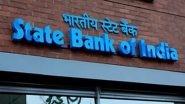Sao Paulo, Nov 30 (AP) Brazil's Federal Police in late November formally accused far-right former President Jair Bolsonaro and 36 others of planning a coup to keep him in office. The agency described a multi-step scheme, substantiated by evidence and testimony, in an 884-page report.
The plan included systematically sowing distrust of the electoral system among the populace, drafting a decree to give the plot a veneer of legal basis, pressuring top military brass to go along with the plan, and inciting a riot in the capital.
Prosecutor-General Paulo Gonet will now decide whether to formally charge the accused parties, toss the investigation or request more testimony to understand each person's participation in different parts of the alleged plot before deciding who stands trial on which counts. Bolsonaro and his main allies have denied any wrongdoing or involvement and accuse the authorities of political persecution.
Here is a breakdown of the plan's key elements as laid out in the report and how they are supposedly connected.
Sowing doubt about Brazil's voting system
Police allege that efforts to disseminate fake news about Brazil's electronic voting system began in 2019, Bolsonaro's first year in office, but were conducted more strategically and intensively as his 2022 reelection bid drew near.
Police say so-called “digital militias” comprised of thousands of social media accounts linked to pro-Bolsonaro propaganda, as well as other prominent right-wing influencers and politicians, spread propaganda claiming the voting system could be tampered with. Bolsonaro also openly expressed admiration for Brazil's military dictatorship (1964-1985), which he claimed saved the country from communism.
The narrative of an impending illegitimate election defeat helped Bolsonaro rally tens of thousands of supporters to multiple street demonstrations and also muster many to set up camp outside military barracks and headquarters to pressure leaders.
Three months before the election, Bolsonaro invited dozens of diplomats to the presidential palace for a nationally televised meeting in which he presented supposed vulnerabilities of the voting system, without providing any evidence.
Following Bolsonaro's loss in 2022 to leftist Luiz Inácio Lula da Silva, Bolsonaro's Liberal Party questioned results at the country's top electoral court, arguing voting devices made in specific years could have permitted fraud. The electoral court swiftly dismissed the claims.
“They spread false studies on the vulnerabilities of the electronic voting machines through the Liberal Party, in an attempt to create a factual basis for a presidential decree” that would set the coup in motion, the report says.
A draft decree to set the coup in motion
In January 2023, Brazilian police found a draft decree in the home of Bolsonaro's former justice minister Anderson Torres. It was one of many versions drafted either at the far-right leader's behest or with his knowledge, police say. The former president presented the document, unsigned, to the commanders of the three divisions of the armed forces on Dec. 7, seeking their support.
Investigators say the draft decree shows Bolsonaro and his allies sought to create a committee to probe alleged fraud and crimes in the October 2022 vote, so they could later suspend the powers of the nation's top electoral court and possibly convene a new election.
The navy's commander was ready to comply with the decree, but army and air force leaders objected to any plan that would prevent Lula's inauguration, the report said. Those refusals are why the plan did not go ahead, according to witnesses who spoke to investigators.
Many legal experts including say evidence that former president presented the draft to military leaders and supported for different versions of the document are very damaging.
“(The goal) was to unduly intervene in elections," said Luiz Henrique Machado, a law professor at the IDP university in the capital Brasilia. "In Brazil, it is the electoral prosecutors' office and the top electoral court that have the final word about electoral legislation.”
In an interview with website UOL published Thursday, Bolsonaro said he discussed with military leaders moves including decreeing a state of emergency and other exceptional measures that would have suspended the rule of law for the public good. He said such measures are provided for by the constitution, so there is nothing unseemly about evaluating those options.
"What is being said is absurd. For my part, there has never been any discussion of a coup,” Bolsonaro told journalists in Brasilia on Monday.
Plan to assassinate the president-elect
On Nov. 19, Brazil's Federal Police arrested four army special operations officers and a federal police officer accused of plotting in 2022 to assassinate Lula, vice-president-elect Geraldo Alckmin and Supreme Court Justice Alexandre de Moraes. The arrested men were all mentioned in a police report that was unsealed later.
The assassination plan sought to leave Bolsonaro's ticket as the only remaining valid one in the 2022 runoff, police say. As for de Moraes, he led a five-year probe into fake news and threats against Supreme Court justices, which has led some far-right allies and supporters being barred from social media and even imprisoned. In early 2023, he presided over the nation's top electoral court when it declared Bolsonaro ineligible for office until 2030 over abuse of power related to a meeting he convened with foreign ambassadors to spread lies about the voting system.
Gen. Walter Braga Netto, Bolsonaro's 2022 running mate and former defense minister, greenlit the assassination plan at a meeting with the plotters inside his home, investigators added. Federal Police portray the retired general as one of the plot's leaders, also involved in pressuring military leaders to sign onto the coup.
Braga Netto said in a statement on Tuesday that he never plotted a coup. He added that several of the documents seized from one of his aides, including “writings, drafts and media reports” were "preparatory material to answer media requests and to prepare for testimony in congressional hearings.”
The police report contains no indication that any attempt to assassinate Lula or Alckmin was put into motion. However, investigators found messages and documents indicating that the plotters were monitoring and following de Moraes at the time.
Police said they found evidence that retired Brig. Gen. Mário Fernandes, one of the officers arrested who had been serving as interim general secretary of the presidency, also visited the protest camps outside military installations, including at the army headquarters in Brasilia. Investigators said they have evidence that he gave instructions and financial support to the protesters.
Jan 8 uprising
Federal Police linked Bolsonaro and some of his top ministers to the Jan. 8, 2023 riot in which supporters of the former president, many of whom had been camped outside army headquarters for months, ransacked the Supreme Court, Congress and presidential palace in Brasilia.
The protesters had pleaded for the armed forces to keep the leftist leader out of office and their uprising - which came after Lula was sworn in - was an attempt to force military intervention and oust the new president, police say.
The riot appears in the report as one of several “other actions to pressure the army commander to join the coup d'etat.” Police also say that Brig. Gen. Fernandes sent a message in November 2022 to Gen. Marco Antônio Freire Gomes, then the Army's commander, discussing the need for a “triggering event” for a coup.
Defendants, including Bolsonaro, have argued that the riot was an isolated event, and many legal experts have noted that the report's evidence of a connection between it and a broader plot is tenuous.
“It is clear that the alleged coup plotters had contacts with people camped outside military barracks, people who were there on Jan. 8. But how much of that contact was transformed into planning, coordination, stimulus for those people to take public buildings that day? That is to be debated, it is going to be discussed in the process and the collection of more evidence,” said João Pedro Pádua, a professor of criminal law proceedings at the Universidade Federal Fluminense in Rio de Janeiro.
Bolsonaro left for the United States days before Lula's inauguration on Jan. 1, 2023 and stayed there three months, keeping a low profile. The police report alleges he was avoiding possible imprisonment related to the coup plot and awaiting the fallout from the uprising. (AP)
(This is an unedited and auto-generated story from Syndicated News feed, LatestLY Staff may not have modified or edited the content body)













 Quickly
Quickly

















